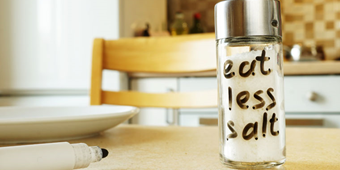- Cardiology And Vascular Health
- Fitness
- Fitness and Exercise
- Health Topics
- Heart And Vascular Disease Prevention
- Staying Active
Tips For Heart-Healthy Winter Exercise And Physical Activity

Winter weather is no reason to avoid healthy choices and sticking with an exercise plan. It’s important to make exercise a part of your daily routine no matter how cold it might get outside.
In addition to reducing the risk of heart disease, high blood pressure, diabetes, some cancers and osteoporosis, the American Osteopathic Association (AOA) states that regular exercise will help beat the “winter blues” by improving your mood, increasing your energy, and helping you get a better night’s sleep.
The AOA recommends trying the following exercise activities during the cold winter months:
- Build a home gym. Find some practical, easy-to-use equipment that you can use at your convenience year-round.
- Join a health club. Whether it’s close to work or home, you can take advantage of their variety of equipment and organized fitness classes.
- Seek out an indoor pool. Try water aerobics, swim laps, or search online for water workouts to fit your lifestyle.
Some people choose to continue their exercise routine outside throughout most of the winter months. However, people with heart disease, children and elderly people are most at risk for hypothermia, when the body temperature falls below 95 degrees Fahrenheit.
The American Heart Association (AHA) warns that people with coronary disease can suffer chest pain or discomfort, known as angina pectoris, when spending time in the cold.
Cold winter weather can also increase your risk of heart attack from overexertion during outdoor activities and chores, such as shoveling snow, according to the AHA.
The association suggests the following to make removing snow safer:
- Avoid drinking alcohol just before and after shoveling. Alcohol increases your sensation to warmth and can cause you to underestimate the extra strain on your body in the cold.
- Choose a small shovel or use a snow blower. Lifting heavy snow can raise your blood pressure, so it’s safer to lift a smaller amount on a small shovel. Better yet is using a motorized snow blower that does the work of moving the heavy snow for you.
- Don’t eat a large meal just before or after shoveling. Eating a lot can put unnecessary stress on your heart.
- Know the dangers of hypothermia. Prevent hypothermia by dressing in warm layers and wearing a hat.
- Take frequent breaks. By resting frequently while shoveling, you can lessen the risk of overstressing your heart.
Source: American Osteopathic Association; American Heart Association




